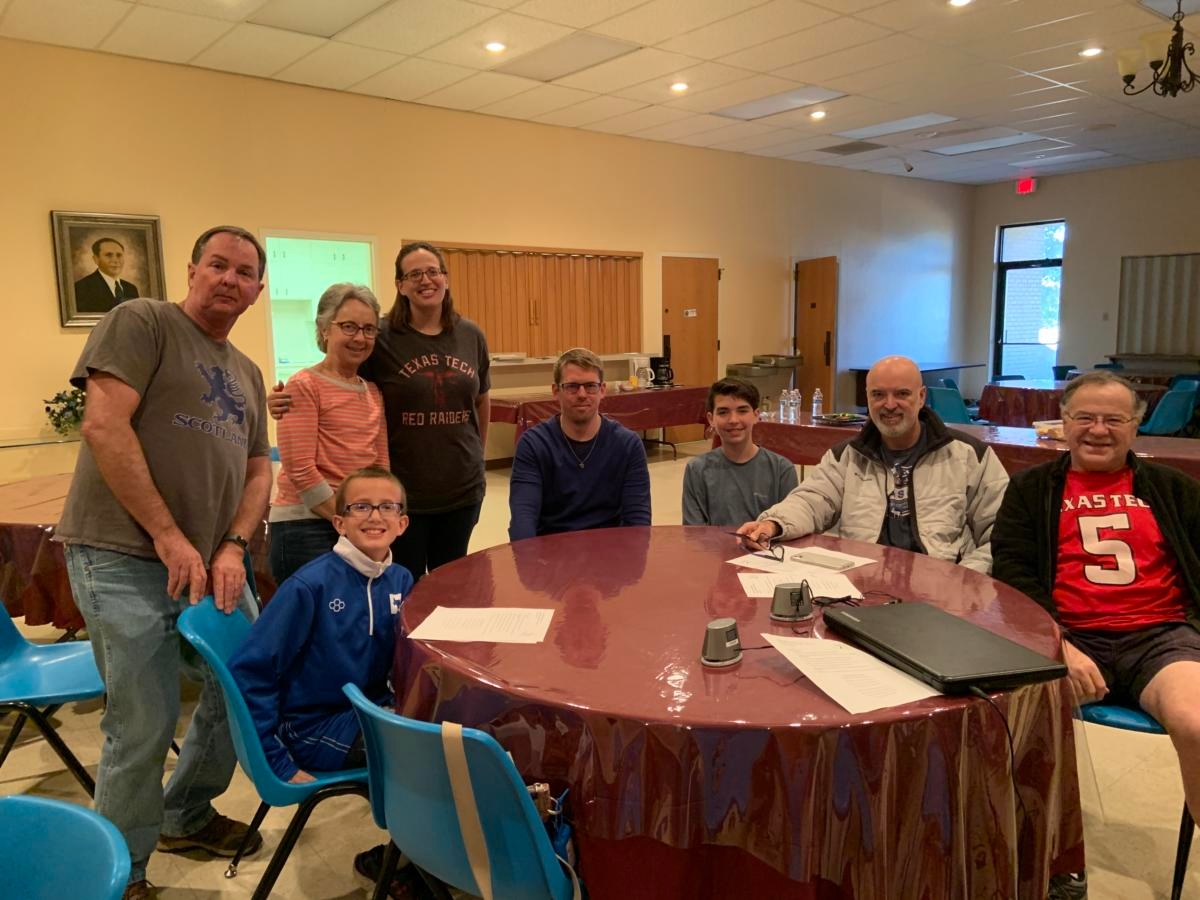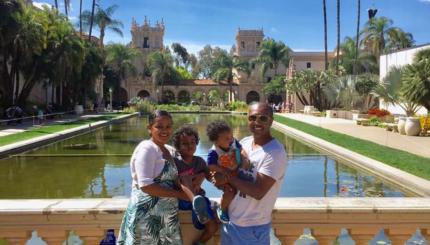“You shall not wrong a stranger or oppress them, for you were strangers in the land of Egypt.” Exodus 22:20
This spring, I have missed getting to travel—specifically, I’ve missed visiting all of the communities I serve as an ISJL Education Fellow. It’s one of the highlights of my job, getting to travel the South and work directly with students and teachers. But the time at home has given me the opportunity to reflect on some of the meaningful moments I had earlier in the school year—one of which particularly stands out.
On one of my fall community visits, I had an unexpected encounter with two strangers.
It was a sunny, crisp Saturday afternoon in Lubbock, Texas. After grabbing lunch with a few community members, I pulled up into the local synagogue’s parking lot. I had planned an afternoon program where we would be watching an ELI Talk (Jewish spin-off a TED Talk) on the concept of olam habah (the world to come). Getting out of the car, I noticed another vehicle parked nearby.
The car was bright blue, and looked like a race car. The synagogue members I was with did not recognize the car or know the people inside. Since Lubbock is a small, intimate Jewish community, where everyone knows everyone… this struck me as odd.
After a moment of hesitation, a community member and I walked over to this fancy blue race car. Inside the vehicle, we found a father and son. The man waved, to which we responded with a big “hello”! He asked us if there was a rabbi on site with whom he could speak. I explained that the rabbi works part-time out of state and is only in town about two times per month. Once he heard that, the man began to explain his story.
Once an active member of the Lubbock Jewish community, the man’s family lost touch with their Jewish identity over time. He became a bar mitzvah in the building, but after the ceremony, his family’s synagogue attendance ceased entirely. The man and his family grew apart from their Judaism over time. This community, which had upwards of 350 people in the early 1980s, has shrunk considerably over the last three decades. The man explained that it had been over 20 years since he had last seen the synagogue!
His son, seated next to him, was raised secular and had never even been there. However, at 13 years old, he asked his dad about their heritage. His son became very curious about the possibility of becoming a bar mitzvah and convinced his father to drive him over to the synagogue to find a rabbi who could provide some information. That brings us back to the present moment.
After talking for a minute with fellow community members on how to proceed, I thought to myself about a quintessential Jewish text from Exodus Chapter 22: “You shall not wrong a stranger or oppress them, for you were strangers in the land of Egypt.” At this moment, I felt at a crossroads on how to engage with the stranger in my midst. On one hand, I could tell him to come back when the rabbi would be in town. On the other hand, I could welcome him to join our afternoon program. After a moment of deliberation, I passed on the rabbi’s contact information and invited them to join my ELI Talk program. The man and his son happily agreed, and community members welcomed them into the synagogue.
It was awe-inspiring to see the man marvel at being in the synagogue for the first time in decades. I felt proud to have welcomed them and confident that I had made the right decision. I ended up having a total of eight people for the ELI Talk program, including the man and his son. The participants engaged fully throughout, and the program was a big hit.
Reflecting on what happened, I cannot help but ponder the chances that I would arrive at the synagogue to run a program right as the man and his son arrived. As an ISJL Education Fellow, I only make two to three weekend trips to the community the whole year— yet this moment still happened. This experience taught me that some moments in life transcend the mundane and serve a greater purpose. This moment served as my opportunity to welcome the stranger in my midst, and I hope you can use this story to welcome a stranger in your midst when the time comes… and to reach out across the social distance in the meantime, to let folks know they’re still always welcome in our communities.



